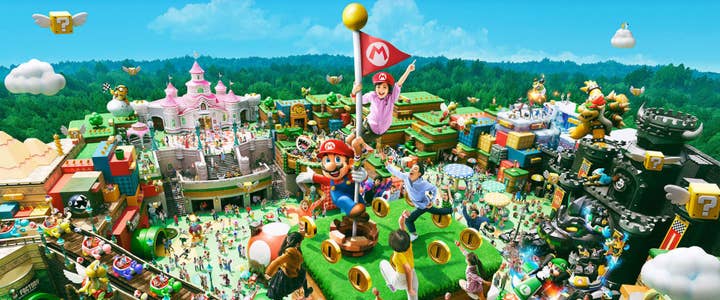Are Nintendo's shareholders right to be nervous? | Opinion
Investors concerned as pandemic boost slows and future slate remains unknown - but the numbers paint a positive picture
Back in November 2014, I was working on a video games magazine and our new owners were concerned.
Advertising had dropped significantly year-on-year, and management wanted to know what the hell was going on? We explained that actually ad sales were robust, and the reason for the weak comparison was because November 2013 saw the launch of two new consoles.
Our owners, who had never worked in games before, understood and asked when the next consoles were launching. I wish I had taken a picture of their faces when we responded: "2020?"
I think of that story during times like this, when highly respected business publications (and analysts) report negatively on the growth of video games. This week, Nintendo's financials (and to a lesser extent Sony's) apparently indicate that the games business is finished and the post-pandemic slump is upon us. I've read the word 'crash' in reference to Switch sales, alongside other hyperbolic phrases like 'slump' and 'rapid decline.'
4.45 million sales is more than double what Switch managed during the same period in 2019. But, look, it's a crash alright?
You see Nintendo's financials over the Spring quarter (April to June) saw sales slide a whopping 10%. Only 4.45 million Switch consoles were shipped during the quarter, a drop of more than 20%.
It's a crisis! Of course, we have to overlook the fact that in the comparable quarter, Nintendo sales had risen 108%, driven by a smash hit video game and a surge in console sales driven by the first COVID-19 lockdowns. A 10% sales slide the year afterwards is actually a bloody good result, but don't let facts get in the way of a good headline.
4.45 million Switch units during the spring quarter is also incredibly high by any other comparison. Few other consoles have ever achieved those figures, and it's more than double what Switch managed during the same period in 2019. But, look, it's a crash alright?
Year-on-year comparisons won't look great, anyone could have told you that, but the signs are good that video games post-pandemic will be more popular than they were pre-pandemic. To me, Nintendo's financials were more reassuring than concerning.

However, shareholder concern for Nintendo didn't start with yesterday's financial report. It's been brewing all summer, with investors seemingly unimpressed with Nintendo's E3 showing and -- more specifically -- the OLED Switch reveal last month.
In this regard, the concerns are more understandable. Outside of some Pokémon remakes, Nintendo is lacking a heavy hitter this side of Christmas in terms of software. The new Switch model will likely result in a short-term boost, but without any significant upgrades to the hardware, is unlikely to have much long-term impact.
The Christmas line-up for Switch may lack a heavy hitter, but when you sell 1.7 million copies of a seven year-old Mario Kart during a typically quiet spring, it doesn't matter so much
2022 looks more promising in terms of tentpole game releases, but with challenges around development brought about by remote working, there is scepticism as to whether all of those titles will make their proposed release windows.
Outside of the Switch release slate, Nintendo expansion into mobile remains slow. Meanwhile, its investment in theme parks and movies is still in its early phases, and have yet to show any real results.
In other words, some investors are unsure about what Nintendo has planned to capitalise on the success of its current console, and haven't seen anything outside of that to get them excited.
Nintendo is also behaving typically conservatively when it comes to expansion and acquisitions. Outside of buying long-term development partner Next Level Games, the company remains focused on organic growth. This is broadly in keeping with what the company has always done, but with games taking longer to develop, and with Nintendo increasingly relying on remasters and ports to keep its Switch audience engaged, there are understandable questions around whether the company has the right resources to meet the demands of its players.
Nobody likes the unknown, but this isn't new. No games company reveals its hand too far in advance, least of all Nintendo. The Christmas line-up for Switch may be lacking a heavy hitter, but when you can sell 1.7 million copies of a seven year-old Mario Kart game during the typically quiet spring sales window, it doesn't necessarily matter so much.
There's a lot of growth potential with Nintendo. Not necessarily in terms of hardware sales, but its digital business still has a lot of growth ahead of it, including its relatively underserved Switch Online subscription service. Nintendo's real strength is also in its IP, and its brands have never been more popular as they are right now.
Of course, whether Nintendo realises that potential is to be seen. This is a company that rarely does anything purely to satisfy its shareholders. It has historically prioritised the reputation of itself and its brands above any short-term financial gain.
That may be why Nintendo's shareholders get nervous. But it's also why they shouldn't be.
